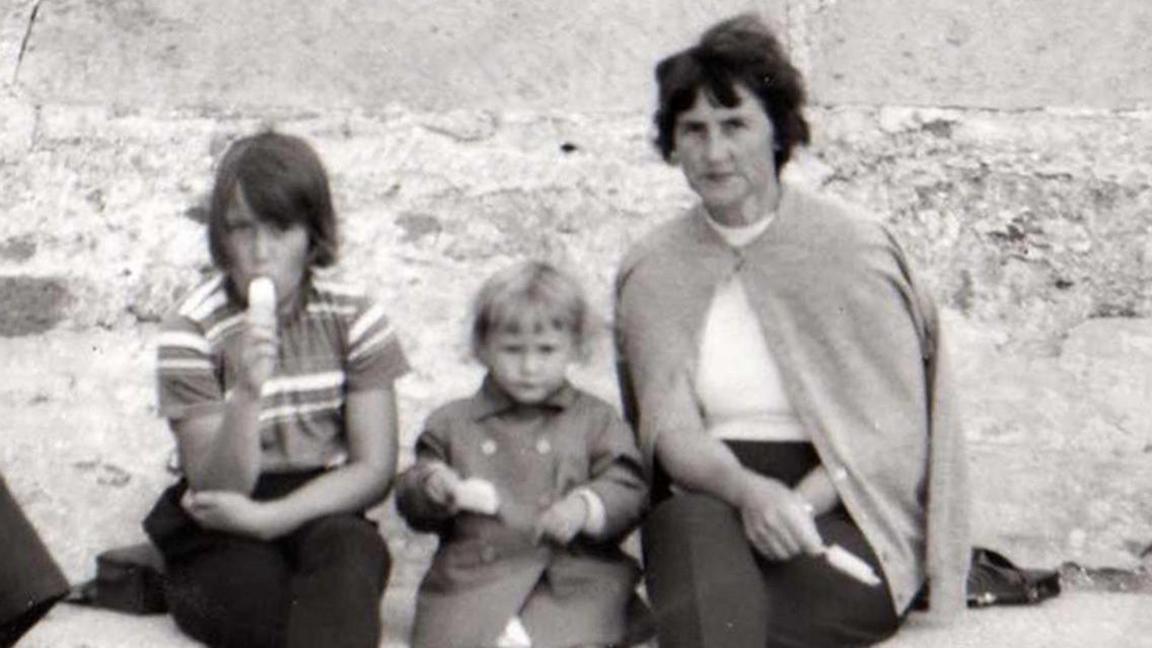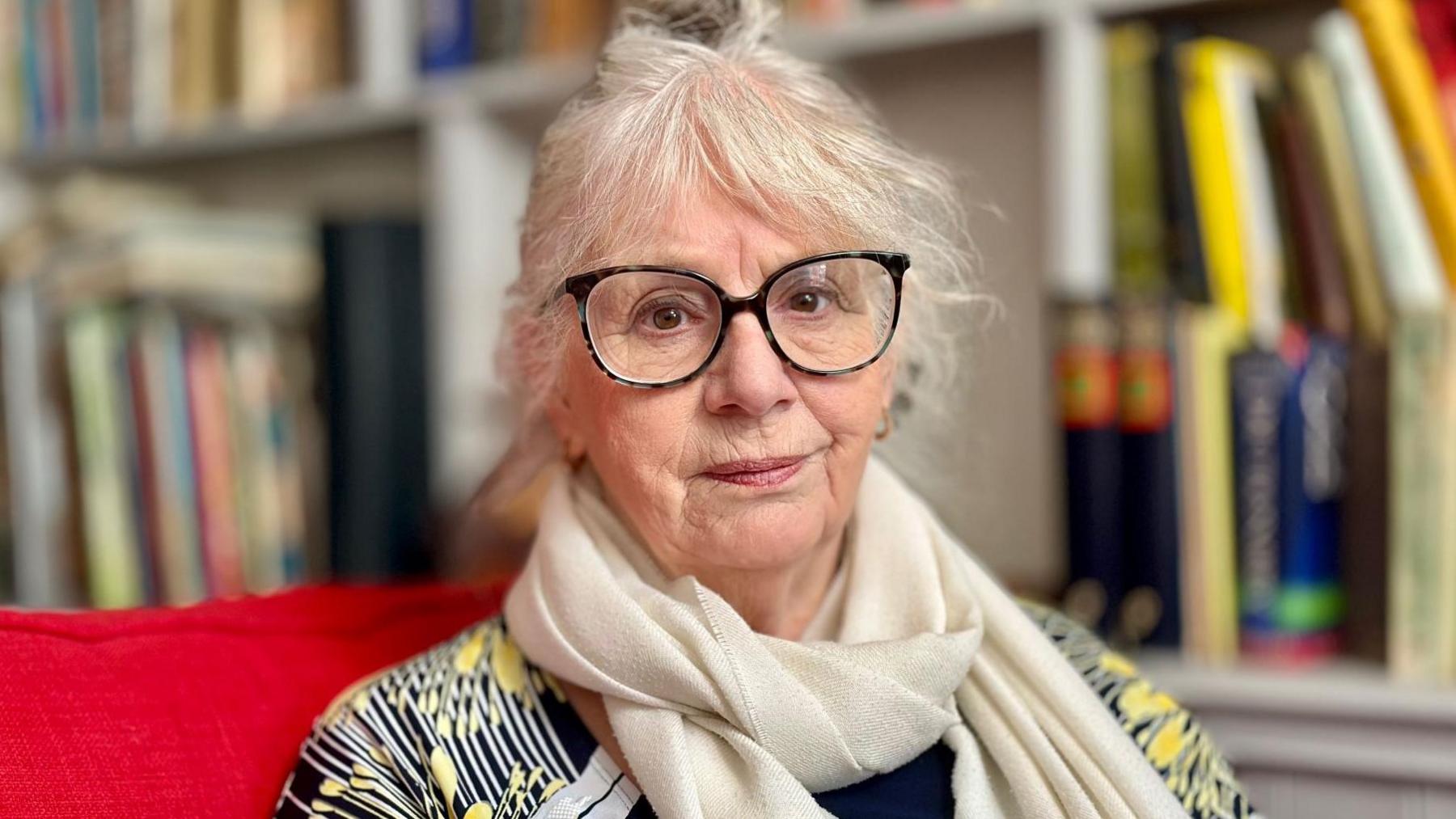Woman exposed to cancer-linked drug seeks justice

Michelle Taylor says she suffered devastating fertility problems after being exposed to DES while in her mother's womb (pictured with her daughter Issy)
- Published
A woman who said she suffered fertility problems after being exposed to a drug linked to a rare cancer while in her mother's womb, has claimed those affected were "like lambs to the slaughter".
Hundreds of victims of the "national disgrace" involving the synthetic hormone diethylstilbestrol (DES) are calling on the government to launch a public inquiry.
Michelle Taylor, 63, from Worcester, said she went through six rounds of IVF but was never told exposure to DES could have affected her reproductive system.
A Department of Health and Social Care spokeswoman said the secretary of state had been looking "seriously" at the legacy issue and "carefully considering what more the government can do".
DES, a synthetic form of the female hormone oestrogen, is thought to have been prescribed to around 300,000 women between the 1940s and the late 1970s to prevent issues, including miscarriages and pregnancy complications.
Never patented, it was made by hundreds of drug companies around the world and marketed under numerous brand names.
In 1971, it was linked to a rare vaginal cancer called clear-cell adenocarcinoma, prompting US regulators to say the drug should not be prescribed to pregnant women.
However, it continued to be prescribed to pregnant women in Europe until 1978.

Michelle Taylor's mother, Sylvia Bennett (right) was prescribed DES in during the 50s and 60s.
Mrs Taylor's mother, Sylvia Bennett, was prescribed it during two of her pregnancies.
When she died of bowel cancer at 55, Mrs Taylor — who was 15 at the time — and her sister, then 21, were called to Birmingham Women's Hospital and told they may be affected by clear-cell adenocarcinoma.
"My sister was examined and was showing early signs," Mrs Taylor said.
While her sister was treated, Mrs Taylor was monitored by the clinic until she was 43.
At 23, she had a near-fatal ectopic pregnancy, followed by another four months later, and believes they were caused by DES exposure, as her fallopian tubes were congenitally narrowed.
"I was never told, ever, that the drug could damage the reproductive system," she said.
Between the ages of 23 and 37, Mrs Taylor and her husband went through six rounds of IVF, finally having daughter, Issy.

Issy Taylor says her mother suffered fertility issues after her grandmother took the drug
Mrs Taylor is one of more than 300 people to have formed the group DES Justice UK (DJUK) to seek answers, compensation and a screening programme for those affected.
"These women were like lambs to the slaughter. They preyed on their maternal instincts. They were exploited," she said.
Group spokesperson Issy Taylor, 25, Mrs Taylor's daughter, said she herself had experienced abnormal cervical cell changes.
Ms Taylor added: "We were used as human guinea pigs for profit, and decades later, we're still being denied the proper healthcare, compensation, recognition, and justice we deserve," she said.
Solicitor Clare Fletcher, partner at Liverpool-based law firm Broudie Jackson Canter, has called for the government to take responsibility for the "national disgrace" and set up a statutory public inquiry to look into what happened.
A Department of Health and Social Care spokeswoman said: "There are harrowing accounts of harm caused by the historic use of DES, with some women still suffering from the associated risks of this medication which have been passed down a generation, and not feeling adequately listened to or supported."
She added the secretary of state had asked NHS England to urgently work with local cancer alliances to make sure GPs were aware of follow-up guidance for those exposed to DES and the need for additional screening.
Get in touch
Tell us which stories we should cover in Hereford & Worcester
Follow BBC Hereford & Worcester on BBC Sounds, Facebook, external, X, external and Instagram, external.
- Published29 October
